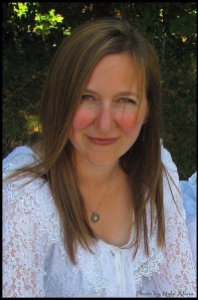A guest post from author Sage Cohen
I am thrilled to have Sage Cohen, pictured left, writing here for my first guest post. Sage’s background and the details of her latest work, including her new book, ‘The Productive Writer‘ are below. I am indebted to Sage and her work as a gifted writer and teacher who has enriched my writing life.
In this post, Sage encourages us to review our broader writing successes in 2010 in preparation for a productive 2011!
Happy New Year, writers! I believe that there is no better launching pad into the great, blank page of 2011 than a thorough inventory of all that went right in 2010. With this in mind, I’m going to ask a series of questions to guide you in recounting your many successes this past year! I encourage you to take your time and be as thorough as you can in listing every single thing you appreciate about yourself and what you’ve accomplished in each dimension of your writing life–even if the best you can do is admire that you stopped burning your rejection letters. Deal?
- What was most fun, exhilarating or rewarding in your writing life this year?
- What obstacles did you face and overcome?
- What relationships did you build, repair or retire, and how has this contributed to your writing life?
- What did you let go of (habits, relationships, attitudes, clutter) that was no longer serving you?
- What did you read that taught you something about your craft, your platform or how to take your writing and publishing forward?
- What did you earn or what opportunity did you land that felt prosperous?
- How has your confidence and/or craft improved?
- What have you learned about social media that is serving your writing life?
- What strategies worked best for being effective with your time?
- How did you nurture and sustain your well being–in mind, body, spirit?
- Who has praised your writing or teaching or facilitating? What did they say and how did it give you a new sense of appreciation for yourself and your work?
- What did you learn about your writing rhythms: time of day to write, managing procrastination, how and when to revise, making use of slim margins of time, etc.?
- Who did you help, and who helped you?
- What did you learn about yourself from rejection, and how has it helped your writing, your confidence or your submissions approach develop?
- What did you do that terrified you–but you did it any way? And how did that benefit your life and your writing?
- How were you patient?
- When and how were you successful at juggling the competing demands of family, writing, work, and everything else in your full life?
- Who did you forgive? Who forgave you?
Because it’s so easy to keep our minds trained to the loop of an unsolvable problem or two, you may be surprised at how many triumphs are revealed as you answer these questions. Every risk you took, skill you fortified and skin you shed in the service of your writing life is a foothold in the future you are aspiring to create. Nice work!
Sage Cohen is the author of The Productive Writer (just released from Writer’s Digest Books);Writing the Life Poetic and the poetry collection Like the Heart, the World. She blogs about all that is possible in the writing life at pathofpossibility.com, where you can: Download a FREE “Productivity Power Tools” workbook companion to The Productive Writer. Get the FREE, 10-week email series, “10 Ways to Boost Writing Productivity” when you sign up to receive email updates. Sign up for the FREE, Writing the Life Poetic e-zine. Plus, check out the events page for the latest free teleclasses, scholarships and more.
![]()








